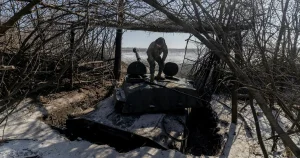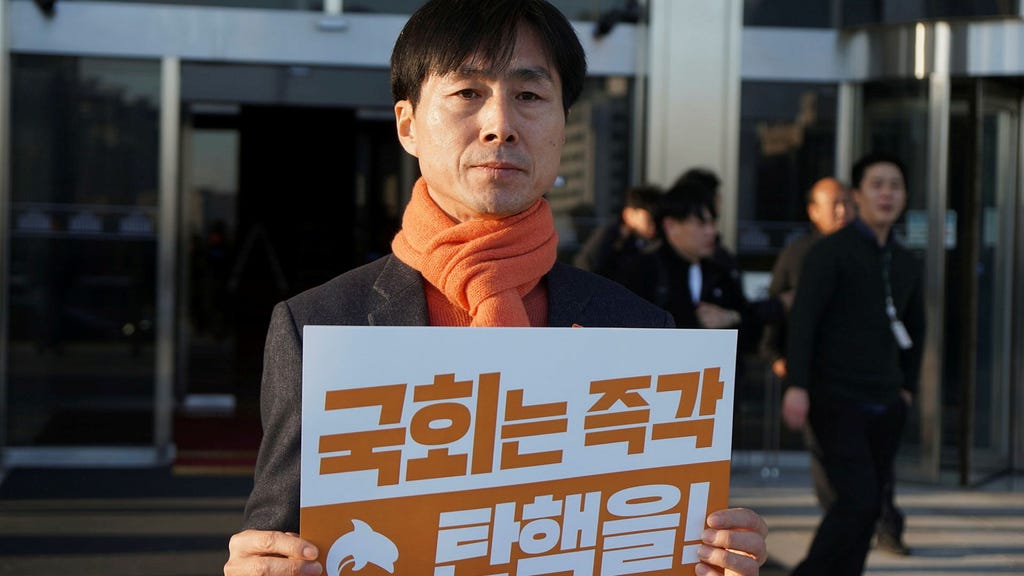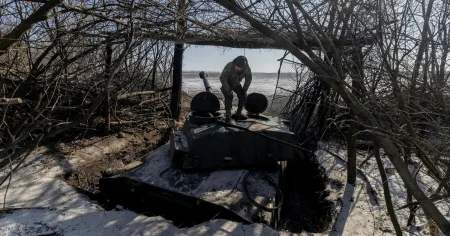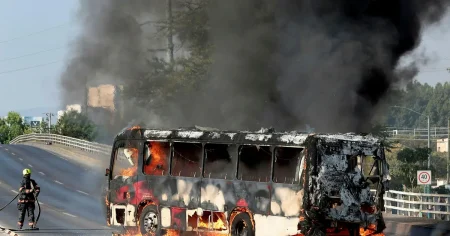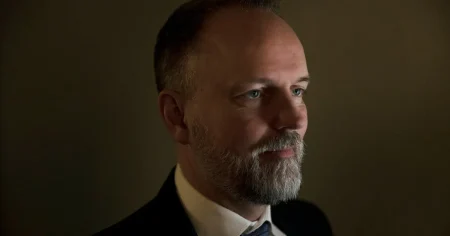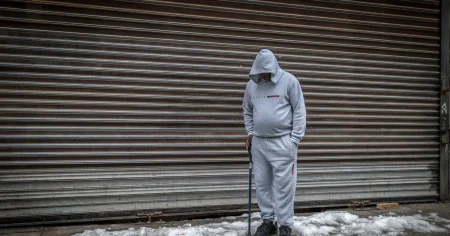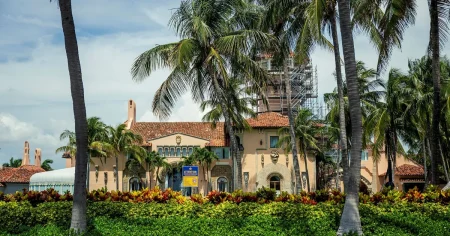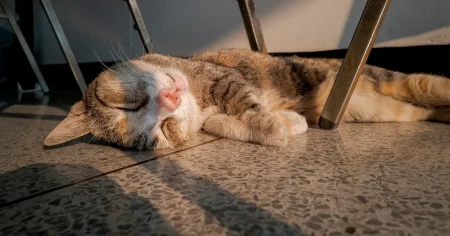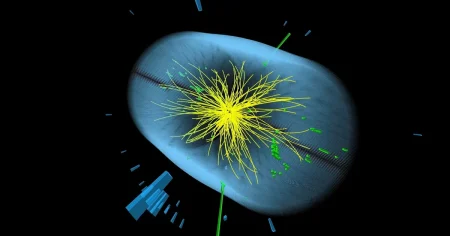The political climate in South Korea has reached a boiling point, with President Yoon Suk-yeol facing intense opposition and calls for his impeachment. Opposition parliamentarians have barricaded themselves inside the parliament building, vowing to remain until the president resigns and is held accountable for his actions. Their distrust stems from President Yoon’s recent declaration of martial law, a move that evoked dark historical memories and sparked widespread protests across the nation. Fearing a potential repeat of this drastic measure, and a possible military intervention against the parliament itself, the opposition members have chosen to maintain a constant vigil within the building, forgoing the comfort of their homes for the sake of safeguarding democracy. This act of defiance underscores the severity of the political crisis gripping the nation.
Inside the stark white walls of the parliament building, the opposition members are making do with makeshift sleeping arrangements, prioritizing their political stand over personal comfort. Chang Min-han, a representative of the social democratic party, articulated the group’s unwavering commitment, stating that they would remain until President Yoon’s removal and subsequent impeachment. He emphasized the importance of protecting democracy, highlighting the perceived threat of military intervention should they abandon their post. This fear of a potential power grab by the president fuels their resolve to remain within the parliament, acting as a symbolic and physical barrier against what they see as an assault on democratic principles.
The tension surrounding President Yoon’s attempted visit to the parliament further illustrates the depth of the divide. Journalists gathered en masse outside the building, anticipating a confrontation. The opposition members, however, stood their ground, forming a human barricade at the main entrance to prevent the president’s entry. Chang Min-han declared Yoon ”criminal,” underscoring the opposition’s strong condemnation of his actions. This bold act of defiance successfully repelled the president, forcing him to turn back. The incident serves as a powerful visual representation of the fractured relationship between the president and the opposition, highlighting the erosion of trust and the escalating political crisis.
The declaration of martial law, albeit short-lived, remains a central grievance. Despite the parliament’s swift action to overturn the measure, the opposition regards it as an unforgivable breach of democratic norms. They are now pushing for President Yoon’s impeachment, seeking the necessary two-thirds majority required for such a drastic measure. The opposition’s hopes rest on securing the support of eight members from the ruling party, a prospect that seems increasingly likely given the growing dissent within President Yoon’s own ranks. The leader of Yoon’s conservative party, Han Dong-hoon, publicly called for the president’s resignation, expressing concerns about the potential dangers of allowing him to continue in office.
Han Dong-hoon’s statement adds significant weight to the impeachment effort, signaling a potential shift in the political landscape. His warning about the ”significant risk” of President Yoon taking further extreme actions, potentially including another attempt to impose martial law, resonates with the opposition’s concerns. This internal division within the ruling party could prove crucial in determining President Yoon’s fate. It highlights the growing unease and disapproval of his leadership, even among those who once supported him. The upcoming vote on impeachment will be a pivotal moment, with the potential to reshape the political future of South Korea.
Meanwhile, the protests on the streets of Seoul continue unabated, reflecting the widespread public anger and frustration with President Yoon’s actions. Students and citizens alike have joined the demonstrations, demanding his resignation and a return to democratic norms. Kang Ji-won, a student who travelled from Daewon to participate in the protests, embodies the determination of the demonstrators. His presence at the parliament, despite being asked to leave by security, symbolizes the unwavering commitment of the people to protect their democracy. This grassroots movement, combined with the growing opposition within the parliament, places immense pressure on President Yoon and underscores the volatile political situation in South Korea.




